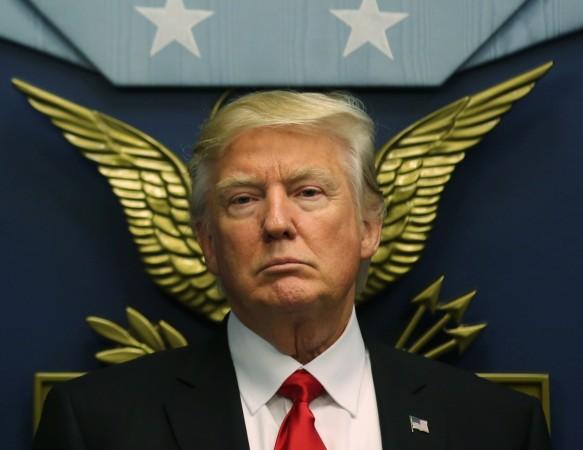
United States President Donald Trump on Sunday (January 29) defended his executive orders to ban refugees from many Muslim-majority countries, saying the ban was not against Muslims. The US president's controversial orders drew rebuke from across the world with thousands protesting near several airports in the country.
The White House issued a statement late on Sunday saying Trump compared his order to his predecessor Barack Obama's orders in 2011 to thoroughly scrutinise visas for Iraqi refugees. However, Trump's executive orders entail a complete ban for refugees and migrants from at least seven Muslim-majority countries.
World leaders oppose Donald Trump's ban on refugees, citizens from Muslim countries
"To be clear, this is not a Muslim ban, as the media is falsely reporting. This is not about religion — this is about terror and keeping our country safe. There are over 40 different countries worldwide that are majority Muslim that are not affected by this order," Trump said in a statement.
Trump also added that America will resume issuing visas to all countries "once we are sure we have reviewed and implemented the most secure policies over the next 90 days." The US president, however, did not elaborate on how the ban did not target the refugees of Muslim faith.
Trump's executive actions on extreme vetting and visa ban applies to migrants, refugees and legal residents of the US— green-card holders — from Iraq, Iran, Sudan, Somalia, Syria, Libya and Yemen.
Soon after Trump's controversial orders on refugee ban came, confusion prevailed even in his administration as the government officials earlier announced that the visa ban would affect the green-card holders residing in America. However, following the protests, White House Chief of Staff Reince Priebus contradicted his own administration's statements by saying on NBC News's "Meet the Press" that "As far as green-card holders going forward, it doesn't affect them."
Trump's orders for a sweeping ban drew intense backlash over the weekend from many lawmakers of both the parties. Senators John McCain and Lindsey O Graham from Trump's own Republican Party spoke out against Trump's executive orders. The federal judges also ruled against many parts of the controversial order.
McCain and Graham released a joint statement saying although it is the government's responsibility to protect the borders, it must uphold "all that is decent and exceptional about our nation," the Washington Post reported.
"It is clear from the confusion at our airports across the nation that President Trump's executive order was not properly vetted," the senators said, adding: "Such a hasty process risks harmful results."
Although judicial rulings across many cities in America blocked the enforcement of the ban to a certain degree, the Department of Homeland Security on Sunday issued a statement suggesting it would continue to implement the US president's orders.
"Prohibited travel will remain prohibited, and the US government retains its right to revoke visas at any time if required for national security or public safety. No foreign national in a foreign land, without ties to the United States, has any unfettered right to demand entry into the United States or to demand immigration benefits in the United States," the department said in a statement.









!['Had denied Housefull franchise as they wanted me to wear a bikini': Tia Bajpai on turning down bold scripts [Exclusive]](https://data1.ibtimes.co.in/en/full/806605/had-denied-housefull-franchise-they-wanted-me-wear-bikini-tia-bajpai-turning-down-bold.png?w=220&h=138)



